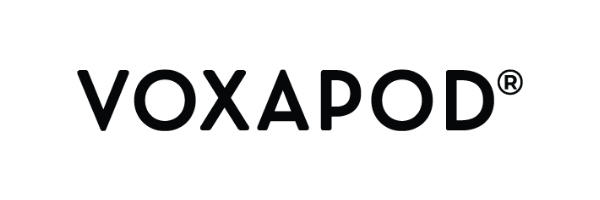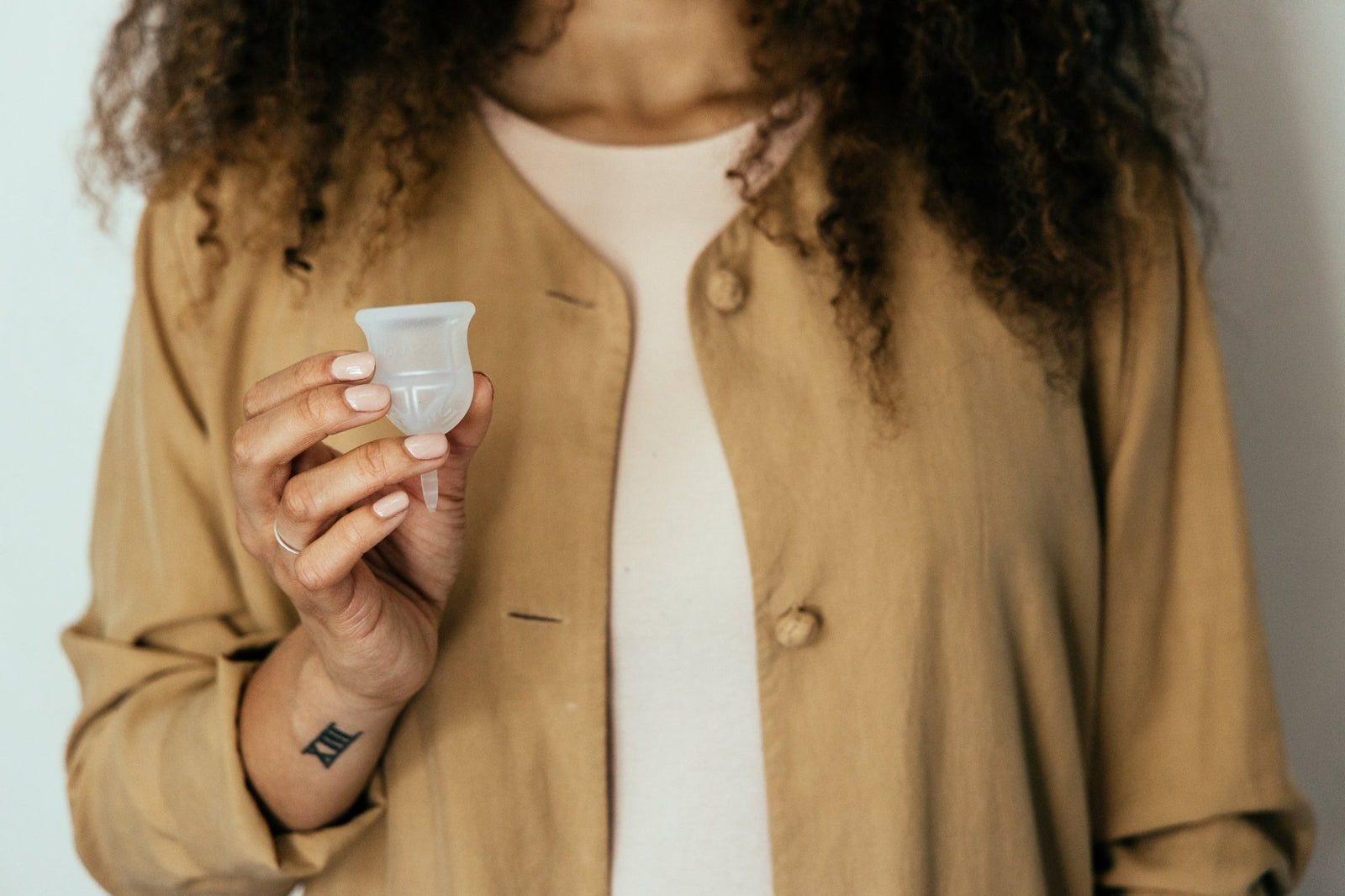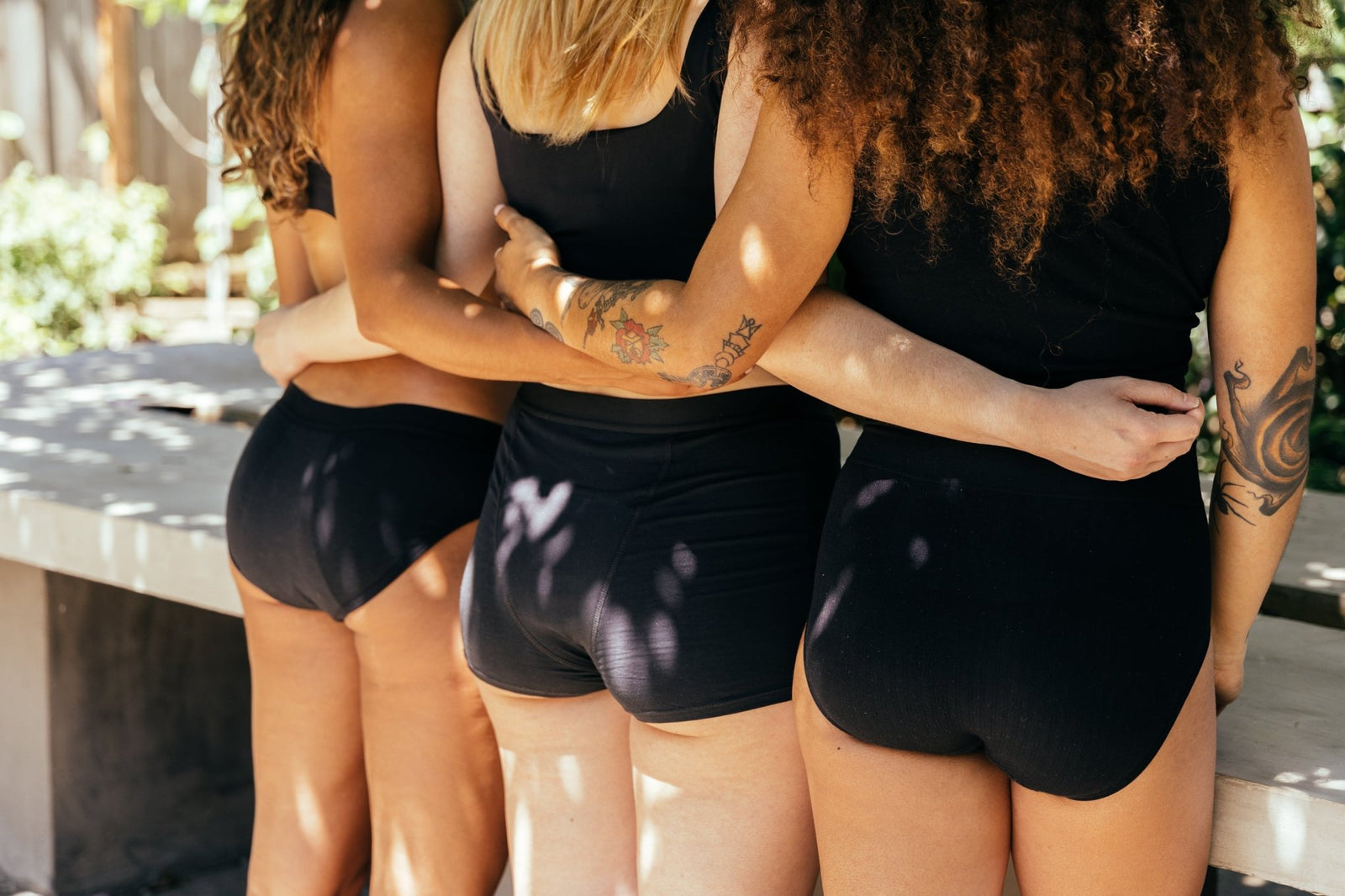The human body, as a whole, requires a number of essential minerals and vitamins to fully develop and function at its best. The nutrients required vary by type and amount, and sometimes by age or pregnancy status.
While there is a general nutrition requirement for all human bodies, it’s important to note that the essential minerals and vitamins needed to be healthy can vary by body composition, how much energy is being used, stress levels, and by gender. Female bodies require specific minerals and vitamins that male bodies don’t. Generally speaking, female bodies undergo a regular monthly hormone pattern—also known as your menstrual cycle—that allows for the reproductive system to tear down and rebuild for a potential pregnancy every month, or to nurture another life for 9 months. It shouldn’t come as a surprise that running a uterus marathon every month requires specific nutrients to stay healthy.

Photo by Juliana Malta
Minerals and vitamins specific to women’s health
Human bodies aren’t able to produce all of the micronutrients needed, but most women are able to get the essential vitamins their body’s need from smart food choices. However, in some cases, you may find that you need vitamin supplements to meet the RDA (recommended dietary allowance) or to improve a vitamin deficiency.
If you’re deficient in some of these minerals and vitamins, not only can it put you at risk for current or future health complications, but it could be the root cause of why you’ve been feeling tired, weak, moody, unable to focus, or get proper sleep.
While all vitamins and minerals play a significant role in your overall health, there are specific benefits of essential minerals and vitamins that are key for women.
Here’s a breakdown of 10 essential vitamins and minerals you may be missing and how to build them into your diet, including a fair amount of scientific support for eating more avocado toast!
Folic Acid or Folate (Vitamin B9)
Folic acid helps prevent cancer by aiding the body in producing blood cells and DNA for new cell development and is especially important before and during pregnancy. For women who are planning to get pregnant, Folic acid is one of the most important vitamins to take, as it helps prevent neural tube birth defects that can occur in the first trimester of pregnancy. Folic acid (or folate) can also help prevent premature births or low birth weight after delivery.
How much Folic Acid do I need?
According to the CDC (Center for Disease Control and Prevention), it is recommended to take 400-800mg of folic acid daily (which most prenatal supplements include), in addition to consuming food with folate.
Foods with Folic Acid or Folate
Naturally occurring sources of folic acid (or folate) are spinach and other dark leafy green vegetables, nuts, citrus fruits, beans, avocado, chickpeas (hummus) and fortified grains, such as cereal, pasta, or rice.

Photo by Annie Spratt
Vitamin D
Vitamin D reduces inflammation and serves as a good source of immune-strengthening to reduce risk of flu, diabetes, and cancer. It also works with calcium and magnesium to build strong bones and prevent osteoporosis.
Women past menopausal age are known to be at an increased risk for developing osteoporosis. Osteoporosis is a bone disease in which the bone quality and density is drastically reduced, making bones fragile and prone to fracture.
How much Vitamin D do I need?
Mayo Clinic recommends at least 600 IU of vitamin D daily, however, 1,000 to 2,000 IU per day of vitamin D from a supplement is safe and fairly common.
Foods with Vitamin D
The most common natural source of vitamin D is direct sunlight, however, you can increase your Vitamin D by consuming fatty fish (i.e. Salmon, Herring, Sardines, canned tuna), oysters, shrimp, egg yolks or mushrooms. Vitamin D is often absorbed better when paired with healthy fats, like omega-3 oil.
Iron
Iron assists in developing the red blood cells which are necessary for transporting oxygen to various parts of the body, improving muscle function, increasing brain function, and supporting healthy development during pregnancy. It is also used to help build hormones and connective tissues and can treat anemia and other chronic diseases. Iron supplements may be very helpful, especially for those who have a heavy menstrual flow, as iron is lost during your period every month.
How much Iron do I need?
Women require varying amounts of iron in their body depending on age and physical activity. Female athletes are prone to being deficient in iron and are sometimes recommended to add up to an additional 10mg of iron per day.
On average, it is recommended that women from ages 19-50 get about 28mg. During pregnancy, there is a standard requirement of 27mg of iron, and for women above the age of 51, about 8mg of iron is recommended.
Foods with Iron
Sources of iron include red meats and chicken, clams, white beans, cooked spinach, dark chocolate, liver, quinoa, tofu, and lentils
Vitamin B-12
B-12 helps the cells in your brain and nervous system (neurons) function properly, maintaining a healthy heart while keeping your skin and hair healthy. In addition, B-12 aids in digestion, helps maintain energy levels and improves mood. It also helps prevent megaloblastic anemia which can make you feel extremely tired and weak.
How much vitamin B-12 do I need?
The National Institutes of Health recommends women get 2.6 mcg of vitamin B-12 per day unless they are breastfeeding, then 2.8mcg is the recommended amount.
Foods with B-12
Natural sources of vitamin B-12 are beef, liver, chicken, fish, shellfish, low-fat milk, yogurt, cheese, eggs, fortified cereals or soy. Vegans and vegetarians may consider taking a supplement since most foods rich in B-12 are animal products.

Photo by Jessica Felicio
Biotin (Vitamin B7)
Biotin, or Vitamin B7, is much like the other B vitamins, helping convert the macronutrients (proteins, fats, and carbohydrates) you consume into energy that can be used. In addition, Biotin is vital for healthy fetal development, supports the nervous and digestive system, but is probably most widely known for supporting healthy skin, hair, and nails.
How much Biotin do I need?
As with other vitamins, the recommended dose varies, but the US RDA is 300mcg, while the Mayo Clinic recommends a daily allowance range between 30mcg to 100mcg. Because B vitamins are water-soluble, the body will not store them in excess amounts, rather it will flush them out.
Foods with Biotin
The best food sources containing Biotin (vitamin B7) include avocados, cauliflower, almonds, sweet potatoes, spinach, cheese, and mushrooms.
Calcium + Magnesium
Calcium and magnesium help prevent osteoporosis and keep your bones strong. When the body is deficient in calcium, it may steal stores of calcium from the bones, making them more fragile and putting you at higher risk for osteoporosis. Calcium also helps with blood clotting and muscle and nerve functions. Magnesium helps regulate your blood sugar levels and blood pressure, as well as your nerve and muscle functions. Magnesium is essential in aiding the body in absorbing and metabolizing calcium and vitamin D.
How much Calcium and Magnesium do I need?
For a long time, it has been recommended that women under 50 get 1000mg of calcium per day and women over 50 get 1200mg of calcium, however, there are recent experts saying that 500-700mg is adequate.
The RDA of magnesium for women aged 19-30 years is 310 mg (women); 31 years and older, 320 mg (women). For pregnant women, the magnesium RDA is between 350-400 mg.
Foods with Calcium and Magnesium
Natural sources of calcium include collard greens, broccoli, kale, soybeans, canned sardines, tuna or salmon, yogurt, milk, cheese, and seeds. For magnesium, try cashews, edamame, brown rice, avocados, chickpeas or hummus, and seeds.

Photo by Soroush Karimi
Vitamine E
Vitamin E helps protect cells from damage by acting as an antioxidant. Antioxidants protect body tissue from damage caused by free radicals, believed to play a role in aging. Vitamin E can repair damaged skin, help balance hormones, balance cholesterol, improve vision, and can even improve premenstrual symptoms (PMS).
How much Vitamin E do I need?
The recommended amount of Vitamin E per day is 15mg for women, and 19mg when breastfeeding.
Foods with Vitamin E
Vitamin E can be found in red peppers, broccoli, butternut squash, fruits, seeds and nuts, as well as vegetable oils, like sunflower, safflower, wheat germ, or hazelnut oil.
Vitamin A
Vitamin A helps build healthy skin, supports skeletal tissue, fetal development, and the immune system, but is probably most well known for supporting healthy vision. It’s a group of fat-soluble compounds––preformed vitamin A (retinol and retinyl esters) and provitamin A (carotenoids)––some of which are found in animal products and others which are found in plant-based foods. Vitamin A is also a powerful antioxidant, helping fight free radicals in the body.
How much Vitamin A do I need?
The recommended daily allowance (RDA) is 700mcg for women, which most people are able to absorb from their diet. Should you take a supplement, steer clear of high-dose Vitamin A supplements, as it can be toxic causing severe side effects or even fatality.
Foods with Vitamin A
Again, Vitamin A is a combination of fat-solubles. Preformed Vitamin A can be found in animal products, like eggs, liver, cod, salmon, chicken, or cheese, while provitamin A can be found in plant-based foods, like carrots, sweet potatoes, kale, cabbage, chard, pumpkin or butternut squash.
Omega-3
Omega-3 has several scientific benefits, including keeping your heart healthy and lowering your risk for heart disease, decreasing inflammation, improving eye health, promoting brain health during pregnancy and early life, and reducing menstrual pain (even more so than ibuprofen). It is also known to reduce symptoms of depression, anxiety, metabolic syndrome, and ADHD, and can aid in preventing arthritis and Alzheimer’s disease.
How much Omega-3 do I need?
Based on several large studies, it is recommended to consume 500 mg daily of EPA and DHA because the body does not produce fatty acids on its own. If you have a known heart disease than it is recommended to consume 800-1000mg daily of Omega-3 fatty acids.
Foods with Omega-3
You can find Omega-3 in ground flaxseeds, chia seeds, pumpkin seeds, and walnuts, but they are most commonly found in fatty fish sources, like salmon or fish oil.
When to take supplements
Okay, while you may not start pounding cans of sardines any time soon, you can start to add some of these nutrient-rich foods into your diet to ensure you’re getting the most essential vitamins and minerals that women need to improve energy, sleep, mood, and overall health.
Most women can get the essential vitamins and minerals their body needs from natural food sources and smart eating choices. However, there may be seasons of life or specific cases where it is advised to take additional supplements: if planning to be or are pregnant, post-menopausal, or with vegan and vegetarian diets. If you think your vitamin or mineral levels are significantly low or you’re not getting what you need from your diet, you should consult with your naturopath or doctor about supplements that might be the most beneficial.
Do you take any vitamin supplements? Or, have you noticed a difference when you added some of these foods to your diet? Comment below—let’s learn from each other.

|
Polly Tlg has always been interested in holistic and alternative ways of healing–– Ayurveda and yoga are among her favorite healing methods. Deeply intuitive, she finds true healing surpasses the boundaries of the physical body and embraces the emotional, energetic and subtlest layers of our being. Believing that nature can be the best source of human health, Polly uses her knowledge to help others learn how to be healthy and beautiful using natural remedies. |


















Rick
October 29, 2025
I was a scam victim, I lost a lot of money up to $170,000 I would like to express my gratitude to Innovations recovery Analyst for their exceptional assistance in recovering my funds from a forex broker. Their expertise and professionalism in navigating the complex process were truly commendable. Through their guidance and relentless efforts, I was able to successfully recover my funds of $170,000, providing me with much-needed relief. I highly recommend them on – INNOVATIONSANALYST@ GMAIL. COM or WhatsApp + 1 424 285 0682 to anyone facing similar challenges, as their dedication and commitment to helping clients are truly impressive. Grateful for their invaluable support in resolving this matter.